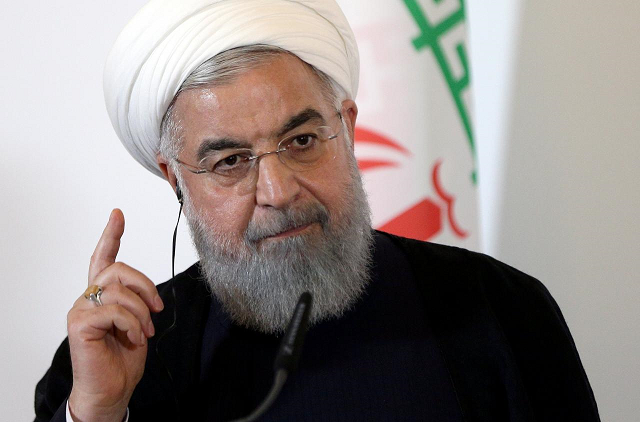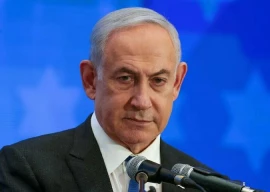
The parliament summoned Rouhani for the first time to answer questions on weak economic growth and rising unemployment, but Rouhani said the troubles only began when Washington reimposed sanctions on Tehran.
US President Donald Trump withdrew in May from a deal that had lifted sanctions on Tehran in return for curbs on its nuclear program.
Washington imposed a new round of sanctions in August targeting Iran’s trade in gold and other precious metals, its purchases of US dollars and its car industry. A new round of sanctions to be imposed in November targets Iranian oil sales.
Iran to open lawsuit against US sanctions at ICJ
“I want to assure the Iranian nation that we will not allow the US plot against the Islamic Republic to succeed,” Rouhani said in a live broadcast on state television.
“We will not let this bunch of anti-Iranians in the White House be able to plot against us.”
He added, “We are not afraid of America or the economic problems. We will overcome the troubles.”
Rouhani, a pragmatist who reduced tension with the West by striking a nuclear deal with world powers in 2015, now faces a backlash from hardliners over Washington’s pullout from the pact.
Hard line elements in the parliament have pressed Rouhani to reshuffle his economic team to better shield the economy from Trump’s moves and tamp down public discontent.
Iran's leaders seek ways to defend economy from US sanctions
Rouhani said the troubles began with anti-government protests in early January when many Iranians, angered by rising prices took to the streets, chanting slogans against the government and Supreme Leader Ayatollah Ali Khamenei.
“The protests tempted Trump to withdraw from the nuclear deal,” he said, asking lawmakers to support his cabinet and not add to anti-government sentiment.
Although the economic problems were critical, Rouhani said, “More important than that is that many people have lost their faith in the future of the Islamic Republic and are in doubt about its power.”
Lawmakers asked why the government had not adopted reforms in the financial sector and foreign exchange market, and sought an explanation why, more than two years after the nuclear deal, Iranian banks still had only limited access to global financial services.
Rouhani appointed a new central bank governor and accepted the government spokesman’s resignation, suggesting that he accepts the need to reshuffle his economic team.











1734606611-0/Express-Tribune-(8)1734606611-0-270x192.webp)
1734587529-0/Express-Tribune-(1)1734587529-0-270x192.webp)

1731295009-0/Untitled-design-(38)1731295009-0-270x192.webp)








COMMENTS (1)
Comments are moderated and generally will be posted if they are on-topic and not abusive.
For more information, please see our Comments FAQ